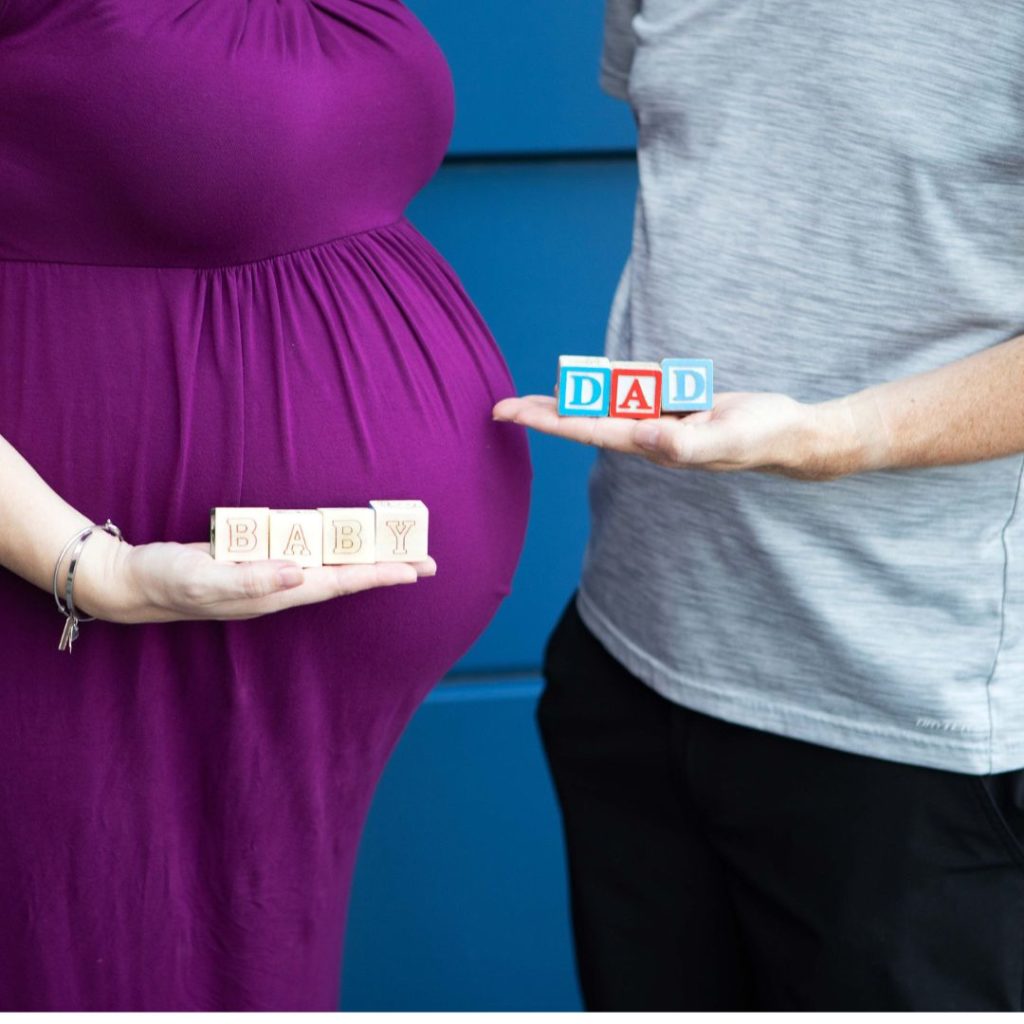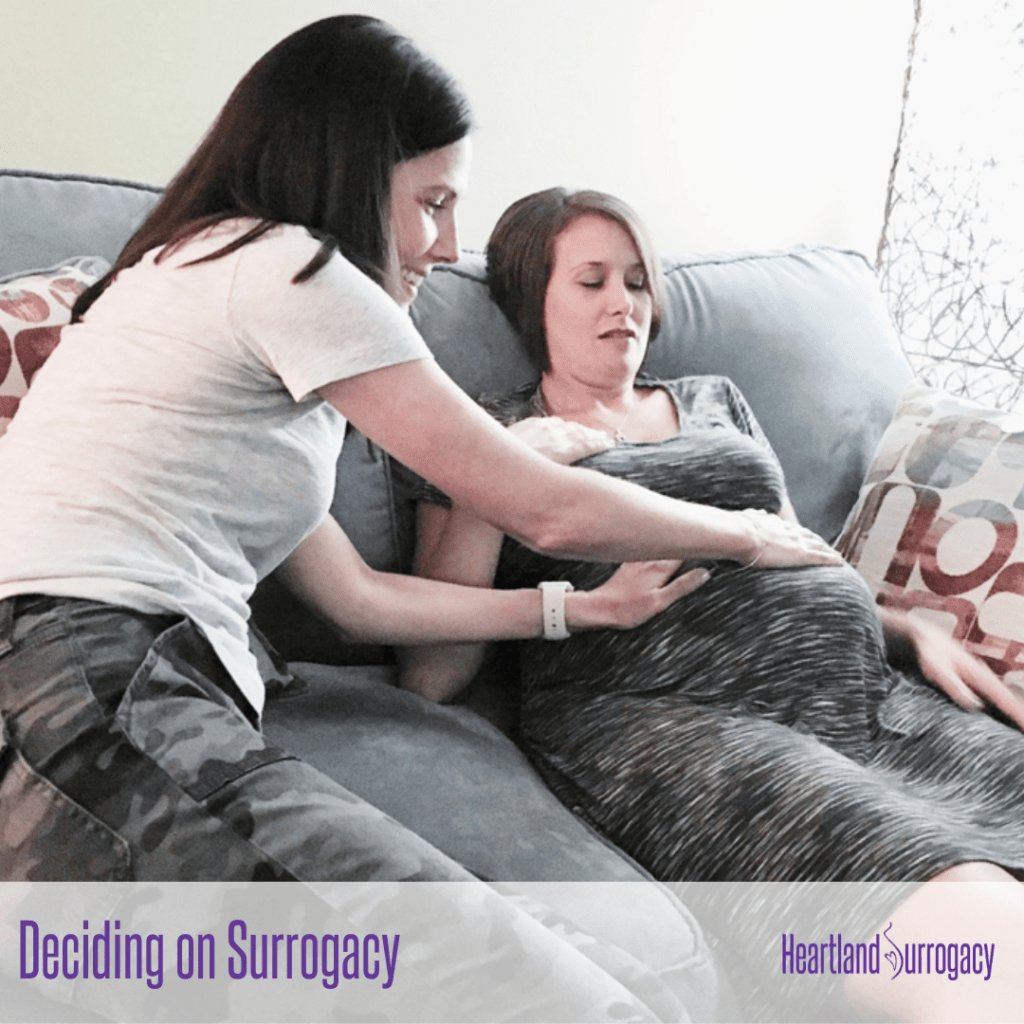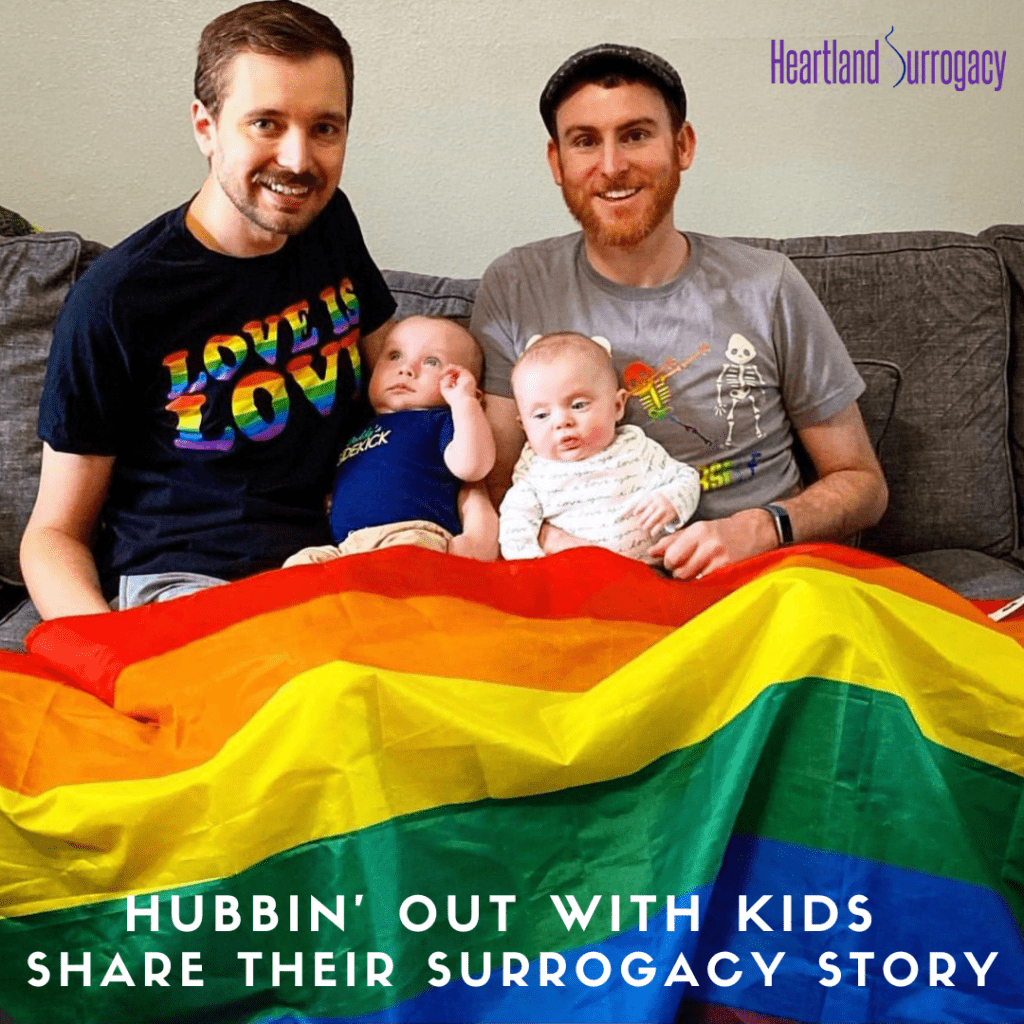Last week, Talk of Iowa host Charity Nebbe covered Surrogacy: Stories of Love, Pain, and Giving, where she talked to talked with two surrogates, an intended mother, a psychologist who works with infertile couples, and an attorney specializing in family law.
Kate Duffus is currently carrying a pregnancy for friends in Austin, Texas; this is the second time she serves as a surrogate, and she has also been an egg donor before. The Iowa Press-Citizen recently covered her surrogacy journey. Duffus was a traditional surrogate in both cases, meaning she provided the egg for the pregnancy and so is biologically related to the baby. The other surrogate interviewed in the segment was Sarah Long of Ames, who served as a gestational carrier for a gay couple from the UK. We shared the news of her delivery of twins at Mary Greeley in Ames on our FB page in April.
Stacey Pawlack, is a Staff Psychologist at the University of Iowa Hospitals & Clinics who works with infertile couples (U of I partners with an agency out of Chicago for surrogacy arrangements). On the show, she explained that unlike a traditional surrogate, a gestational carrier undergoes IVF to carry an embryo that is not genetically related to her. Pawlack also discussed the matter of compensation; Duffus received payment for her first surrogate pregnancy, but is not being compensated for her current pregnancy. Pawlack unfortunately referred to the two instances as “commercial” and “altruistic” surrogacy, respectively. These terms are commonly used in the industry, but we at Heartland Surrogacy would like to point out that all surrogacies are altruistic in nature: surrogates undergo a major medical process and assume great risk to help others achieve their dream of parenthood.
Carmen Janssen is a Des Moines lawyer that has represented our cofounder Brie in her second and third surrogacy arrangements. She discussed the importance of transparency in these arrangements, and said that lawyers who don’t frequently work with fertility law can easily be intimidated by the process of surrogacy. Janssen has extensive experience in this area and has worked with a specific group of local lawyers for several years. She explained that the only reference to surrogacy in the Iowa Code is in section 710.11, which exempts surrogacy from being considered as the selling of children.
Sarah and Kate provided great insight into the unique experience of carrying a child for someone else. When asked about “giving up” the twins, Sarah said there was “no sense of loss” because she knew the babies were going to be well taken care of by their loving dads, and her own twins at home still needed her. Both women laughed about waiting long enough to forget some of the hardships of pregnancy and childbirth before deciding to undergo a surrogacy arrangement. As good surrogate candidates, they have a history of relatively uncomplicated pregnancies, but were clear about the fact that they do still deal with difficulties like pregnancy nausea. Their stories give us a peek into the sacrifices that surrogates make in fulfilling this incredible role.




